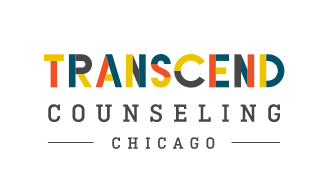How to Start Therapy
On a recent episode of the NPR podcast “Life Kit,” four tips for starting therapy were shared with listeners. Even as a therapist myself, there have been obstacles to getting started on the path to therapeutic change.
It can seem like there’s an endless number of things that prevent people from starting therapy: stigma, fear of the unknown, a previous therapy experience that was negative, or feeling like your problems aren’t “big enough” to seek professional support.
Fighting Stigma
Stigma refers to the shame we fear will visit us if we deviate too much from our social group’s expectations. While mental health stigma has been reducing overall, especially for younger generations, stigma still prevents us from speaking out about mental health and from getting ourselves the support we need. Depending on your identities and background, stigma can be compounded by messages such as, “Real men don’t talk about their feelings,” or “We don’t believe in mental illness in our culture/family.”
What we can all do to fight stigma is to call it out and revise the conversation with positive messaging. When people talk about their positive experiences in therapy, it helps others consider it to be an option for themselves. While we fear others might judge us for being in therapy, these revelations are often met with positivity and interest. People want to know how you found your therapist and how it has helped you.
Overcoming the Fear of the Unknown
If you’re new to therapy, you might just not know what to expect. While every therapist is unique, there are a number of things that are fairly universal to the process. First, therapists are bound by legal and ethical requirements put in place for your safety and well-being. Confidentiality ensures that anything you share in therapy stays between you and your therapist. Your therapist will make sure you are informed of any limitations to confidentiality depending on your circumstances (such as what can and can’t be shared with parents of teenage clients). Our ethical guidelines help us protect each client’s autonomy, prohibit judgment, and preserve healthy boundaries.
So what is therapy actually like? Well, therapy isn’t something that happens to you. We at Transcend believe therapy is a natural human process of growth that happens when people get into the right circumstances. The right therapist for you will be the person who provides you the space to restart your personal growth process. They will support and encourage you, and also challenge you when needed. Therapy is a collaborative process that is focused on the client’s personalized goals and not something that comes out of a one-size-fits all manual.
From the very first phone consultation, you can talk with your therapist about your concerns about what therapy might be like. If anything feels like a “bad fit,” trust your gut and keep looking.
Choosing the Right Therapist
The number one predictor of positive outcomes in therapy is the relationship you have with your therapist. Yep, you read that right. There’s no magic technique or “AHA! moment” you have to achieve. You just need to be with a therapist that makes you feel validated and like they genuinely want you to feel better.
So how do you know when you have the right fit? This piece can be confusing if you’ve experienced a lot of pain in relationships in your life. You might be used to people disappointing or hurting you, and it can be hard to trust that your therapist actually cares about you. Speaking about these concerns with your therapist might be hard, but it will tell you a lot about whether it’s the right fit. If you come away from sessions feeling heard and understood, you probably have a great fit with your therapist. If you’re left feeling ashamed or like your therapist was defensive about your questions and concerns, you can feel confident moving on to another therapist who will be ready to have these difficult conversations.
Validating Your Own Distress
Too often people wait until their distress is at its boiling point before finally scheduling with a therapist. We’ll go to the doctor if we have a headache that won’t go away on its own or an unexplained rash for a few days, but we will go months or sometimes years before addressing feelings of loneliness, anxiety, low self-esteem, or relationship difficulties with a licensed professional. Mental health is frequently seen as separate from other areas of our well-being, even thought it can impact every other part of our lives.
Even if you’re not at the point of having a diagnosable mental health problem, if you’ve read all the way to the end of this post, you’re probably considering starting therapy. If you’re not feeling like yourself, feeling less connected to your loved ones that you want to be, feeling stressed and overwhelmed, or experiencing other life concerns, talking to a therapist can help.
——
Schedule your free 15 minute phone consultation with one of our therapists.
Listen to the episode of NPR’s “Life Kit” referenced in this post.
